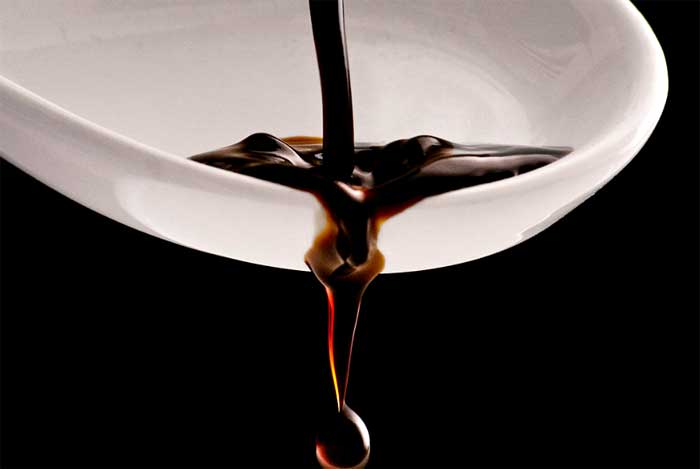Using vinegar in natural remedies

Tips for using vinegar in herbal medicine
Vinegar has been utilized for over 5000 years as a healthy flavor enhancer and food preserver. Meals would be very dull without pickles, salad dressings, and the tartness vinegar brings to the table.
Vinegar not only tastes good. It helps the body digest fat and high protein foods.
The most nutritious vinegars contain beneficial bacteria and live enzymes. They may look slightly cloudy or have settlement on the bottom of the bottle since they have not been heavily filtered.
Herbal vinegars are easy to make. Just add your favorite herbs or berries, then wait a week or two for flavors to blend.
How do I make herbal vinegar?
- Put clean berries, rose hips, roots, bark, or sprigs of culinary herbs like rosemary into a jar or bottle with a tight fitting lid.
- Cover with good quality apple cider vinegar.
- Wait a couple of weeks for flavors to blend.
- Use in salad dressings or take by the spoonful for medicinal purposes.
Yes, it is that easy!
You can also make medicinal herbal vinegars. Follow the directions above.
Use peppermint vinegar for digestion, hyssop vinegar for a cold, lemon balm vinegar to relax, and so on.

Vinegar is a product of fermentation.
Fermentation is a process in which sugars in food are broken down by bacteria and yeast. In the first stage of fermentation the sugars are turned into alcohol. If the alcohol is then allowed to ferment, it becomes vinegar.
The word comes from the French, meaning "sour wine."
Science, vinegar, and healing
Vinegar has been used medicinally for thousands of years. Hippocrates used it to treat wounds. Cleopatra used it in love potions. In the 1800's, vinegar was used to treat diabetes, dropsy, poison ivy, croup, and stomach problems.
Vinegar can be made from almost any carbohydrate including wine, molasses, dates, sorghum, apples, pears, grapes, berries, melons, coconut, honey, beets, and grains.
Acetic acid, is responsible for the tart flavor and odor. Vinegar also contains vitamins, minerals, amino acids, and powerful polyphenols.
White distilled vinegars contain 4% to 7% acetic acid. Wine and cider vinegars contain 5% to 6% acetic acid.
The balsamic vinegar of Modena, Italy, is made from white grapes which are harvested late, fermented slowly, and aged in wooden casks.
Rice vinegars are produced in Asia, coconut vinegars are produced in India, and date vinegars are produced in the Middle East. In the United States, most people use white vinegar or apple cider vinegar.
Oxymel, an ancient medicine, is a combination of honey and vinegar. It was used for treating coughs.
Today, doctors advise against cleaning wounds with vinegar since other antiseptics are available, although undiluted vinegar is useful for cleaning dentures.
Studies show that vinegar is useful in reducing blood pressure. It works by increasing calcium absorption.
Vinegar also has anti-tumor activity. It is a powerful anti-oxidant that slows the progression of diabetes. Studies show that fewer total calories are consumed during the day when vinegar is consumed with breakfast.
Vinegar should not be taken at full strength. It can cause damage to the esophagus and stomach.
Vinegar should be in every kitchen.
Whether brown rice vinegar, balsamic vinegar, apple cider vinegar, malt vinegar, white distilled vinegar, or a flavored variety such as raspberry vinegar, this tangy, acidic liquid serves many purposes.
There are many types of vinegars.
Real Balsamic vinegar is aged from 12 to 100 years. It is made from grapes, is dark in color, and has a sweet, rich flavor.
Most inexpensive brands sold in supermarkets are not true Balsamic vinegars, although they may be made from grapes. Real balsamic vinegar is relatively expensive.
Rice vinegar comes in white, red, and black varieties. It is popular in Asian cuisine.
Apple cider vinegar, as the name implies, is made from pulverized apples. It is often used in home remedies.
Vinegar may be substituted for lemon or citrus juice in most recipes.
In cooking, vinegar is most often used in sauces, salad dressings, chutneys, and pickles.
In herbal medicine, vinegar is used in the treatment of many health problems.
Vinegar is especially useful when cooling sunburn. Apply diluted white vinegar to skin with a spray bottle. Use a pint of water to a tablespoon of vinegar.
A teaspoon of vinegar added to foods has been shown to reduce the glycemic index (when eating carbohydrates) and is useful in treating obesity.
Vinegar is antibacterial, and can be used to fight warts.
It helps stop body odor when used as a deodorant
Vinegar makes an excellent herbal hair rinse, resulting in shiny, manageable hair.
Vinegar also fights dandruff. Add rosemary for a refreshing scalp treatment.
Vinegar has been used to quench thirst, to stimulate the appetite, and to stop tumors from forming.

Diluted vinegar is often used as a natural household cleanser.
Vinegar removes mineral deposits and grease from coffee makers, appliances, bathtubs, and other smooth surfaces.
It is used to clean windows and to polish brass or stainless steel. Just apply diluted vinegar to newspaper and rub until shiny.
Vinegar is also used to kill weeds.
It makes a good herbicide when applied full strength, but does not destroy the roots of perennials. It only kills top growth.
Most vinegar solutions sold in grocery stores do not exceed 5%. Stronger solutions of vinegar are available but they require careful handling (since vinegar is corrosive and damaging to the skin).
*Vinegar is not appropriate for long term use as it may cause potassium imbalances and calcium to leech from the bones. It can also burn the esophagus when swallowed. Always consult with a healthcare professional before using any herbal remedy especially if pregnant, nursing, or taking other medications.
Sources:
https://www.ncbi.nlm.nih.gov/pmc/articles/PMC1785201/
Blessings to you and yours!
Thanks so much for reading my blog. Jan.

*Note - the information on this website has not been evaluated by the Food and Drug Administration.
© 2005-2024 website design and content by Janice Boling